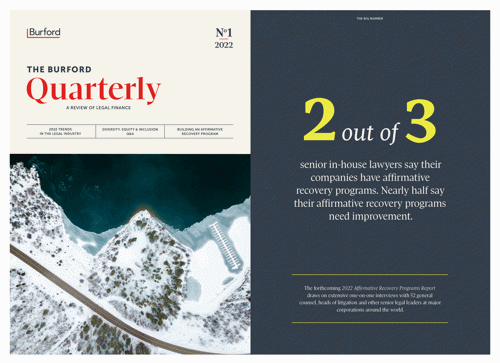Trends in asset recovery
- Asset recovery


While law firms saw a sizable jump in revenue as legal demand hit record-breaking levels in 2021, many businesses struggled to regain footing amid changing restrictions, supply chain shortages and loss of revenue.1 The asset recovery business continued to meet the evolving demands of creditors seeking to enforce judgments acquired prior to or during the pandemic.
In 2022, creditors with unpaid judgments may continue to face severe resource constraints as well as obstacles in recovering monies owed to them, as recalcitrant debtors continue to evade enforcement. As courts reopen and countries adopt new regulations, asset recovery expertise will play a key role in creditors’ enforcement strategies.
The pandemic drove a detrimental accumulation of debt across the globe. In 2020, global debt rose by 30 percentage points of GDP, the largest single-year increase since 1970.2 This increase stretched across most countries and included both private and sovereign debt, the latter being much more difficult to resolve. With private debt, creditors may expect the process of recovering debts from individuals and companies—though costly and time-consuming—to be achievable. However, creditors seeking to enforce judgments against sovereign debtors face a seemingly unsurmountable barrier: Sovereign immunity.
By definition, sovereign immunity, a legal doctrine that grants sovereigns and states immunity from civil suits or criminal prosecution, represents the greatest challenge for claimants in their enforcement efforts against sovereign debtors. Covid-19 and the ensuing downturn has further exacerbated enforcement by creating significant economic concerns for many countries, impacting their ability to pay their debts voluntarily at the same levels as pre-pandemic; leading to a greater desire for these states to litigate using defensive doctrines like sovereign immunity to increase enforcement risk for claimants; thereby driving down any eventual settlement.

Daniel Hall is a Managing Director and colead of Burford’s global corporate intelligence, asset tracing and enforcement business. After leaving the law, he worked in the investigative sector and was a partner at a leading global risk-management consultancy. He spent ten years investigating fraud and financial crime before co-founding Focus Intelligence Ltd.
Michael Redman is a Managing Director and co-leads Burford’s global corporate intelligence, asset tracing and enforcement business. He has worked in complex asset recovery and enforcement for well over a decade, holding senior positions in both Moscow and London before co-founding Focus Intelligence Ltd, a leading asset recovery advisory boutique acquired by Burford in 2015.
 London
Michael Redman
London
Michael Redman